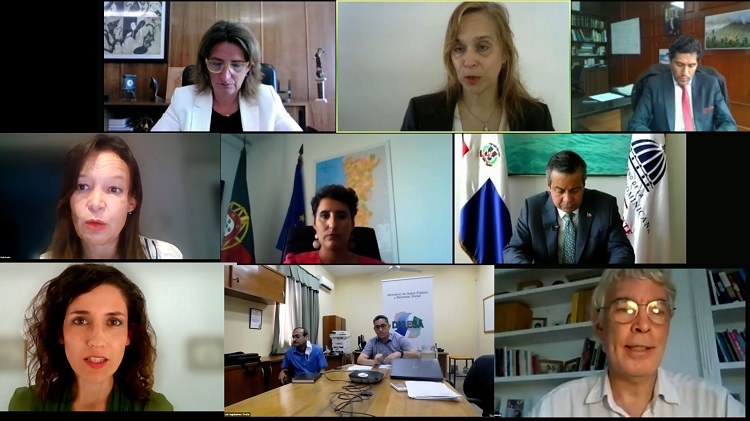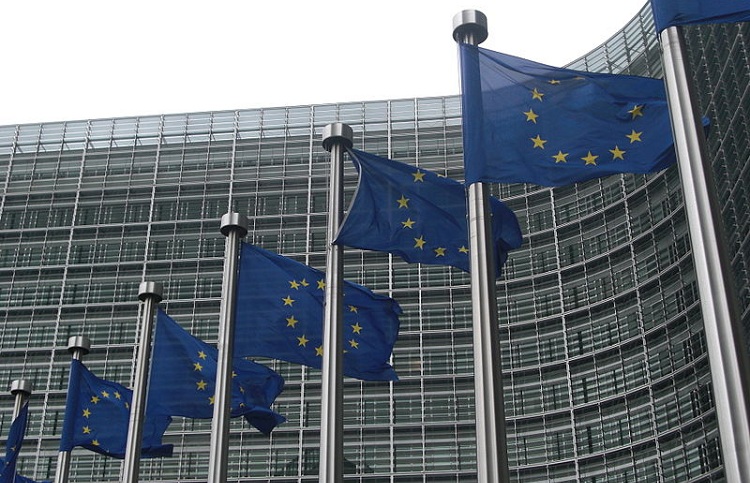The Diplomat
The Ibero-American Environmental Week, held from 20 to 24 June, concluded with participants pledging to promote an Ibero-American Environmental Agenda to tackle climate change and biodiversity loss.
According to a note from the Ibero-American General Secretariat (SEGIB), more than 150 representatives of national and local governments, institutions, foundations and companies from Ibero-American countries took part in the week’s debates, and agreed to join forces to tackle the challenges facing the region in the areas of water, soil, atmosphere and biodiversity, in accordance with what was agreed at the 27th Ibero-American Summit of Heads of State and Government held in April in Andorra.
The meeting, organised by SEGIB, together with the Spanish Agency for International Development Cooperation (AECID) and the United Nations Environment Programme (UNEP), featured 30 virtual meetings in which panellists analysed the urgent challenges facing the region in areas such as water, energy, health and the environment, the climate crisis and the impact on marine and terrestrial ecosystems.
In this way, the Environmental Week echoed the concern of Iberoamerican society and institutions about the region’s high vulnerability to the effects of climate change and environmental degradation.
During the sessions, participants agreed on the need to promote coordinated and multilateral climate action, including mitigation and adaptation measures, and recalled that the fight against environmental degradation, in its various facets, is a pillar of sustainable development inseparable from the economic and social dimensions.
The panellists gave as an example the work of multiple Ibero-American entities that are already working in areas such as water and sanitation, energy transition and the conservation and use of the biosphere, among other issues.
Among those taking part in the meetings were the Third Vice-President and Minister for Ecological Transition and the Demographic Challenge of the Spanish Government, Teresa Ribera; the Vice-President of the Dominican Republic, Raquel Peña; the Minister of the Environment and Natural Resources of that country, Orlando Jorge Mera; the Minister of the Environment of Chile, Carolina Schmidt; the Minister of the Environment and Sustainable Development of Colombia, Carlos Eduardo Correa; the Secretary of State for the Environment of the Dominican Republic, Raquel Peña; and the Minister of the Environment and Sustainable Development of Colombia, Carlos Eduardo Correa; the Secretary of State for the Environment, Ministry of the Environment and Energy Transition of Portugal, Inês Dos Santos Costa; the Regional Director for Latin America and the Caribbean of UNEP, Jaqueline Álvarez; the Director of AECID, Antón Leis; the Mayor of Bogotá and Vice-President of the Ibero-American Centre for Urban Strategic Development (CIDEU), Claudia López; the Mayor of Seville and President of the Spanish Network of Cities for Climate, Juan Espadas; and the CEO of the Chilean waste recycling company Triciclos, Verónica de la Cerda.
The Environmental Week has positioned Ibero-America as an important space for cooperation and dialogue on environmental issues, in anticipation of two crucial United Nations conferences on climate change and biodiversity, in which States are expected to present more ambitious commitments to prevent the collapse of the climate and natural systems, the SEGIB note points out.
All the discussions have contributed to formulating the environmental dimension of Ibero-American Cooperation towards the XXVIII Ibero-American Summit of Heads of State to be hosted by the Dominican Republic in 2022, under the slogan “Together for a fair and sustainable Ibero-America”.
The meeting was held to coincide with the 30th anniversary of the Ibero-American Summits of Heads of State and Government, and was part of the United Nations Decade on Ecosystem Restoration for the benefit of people and nature.







